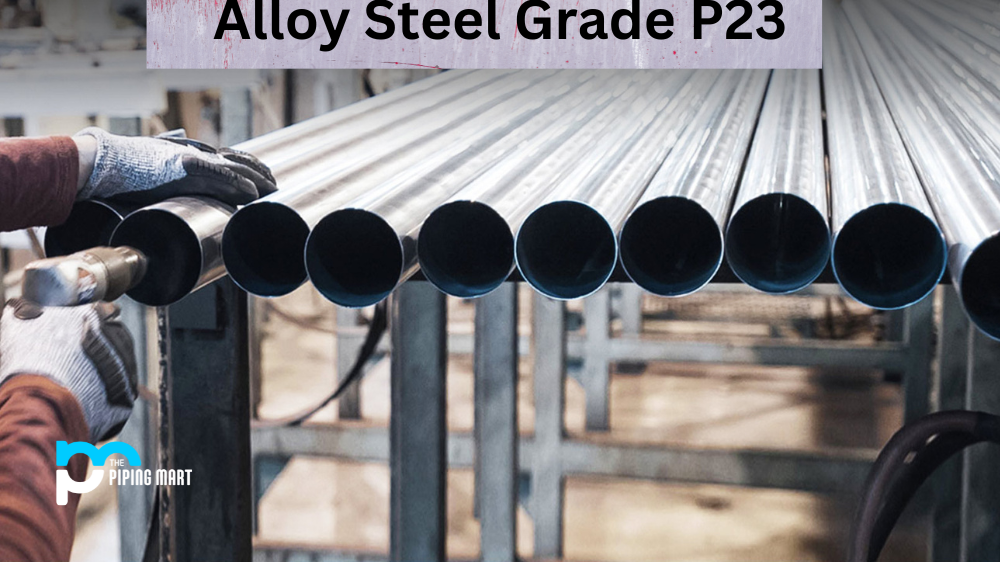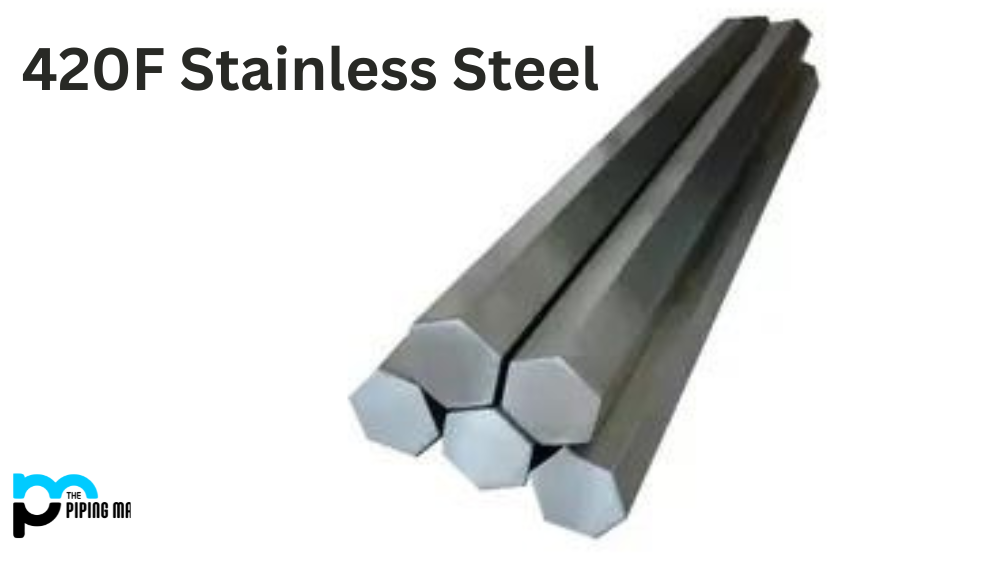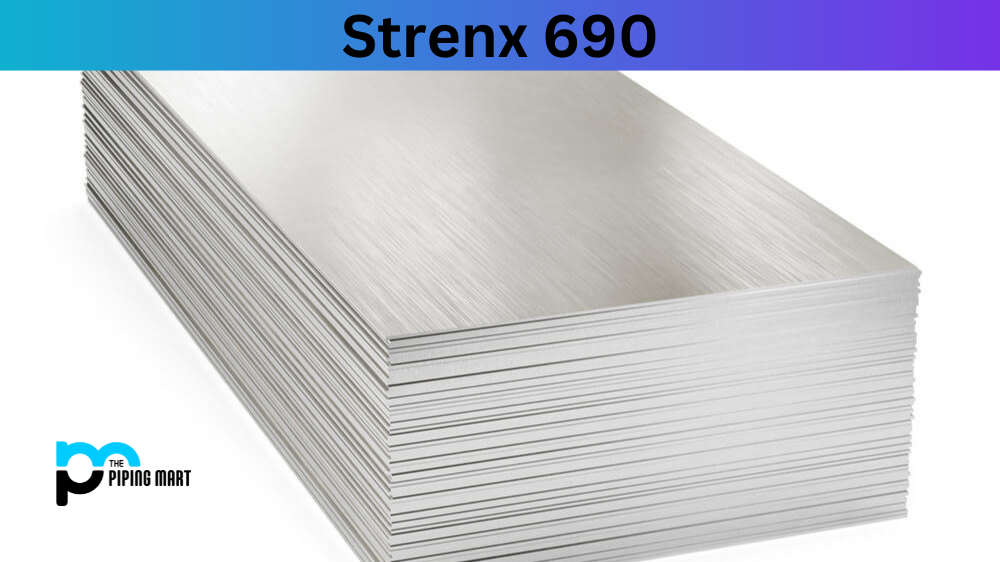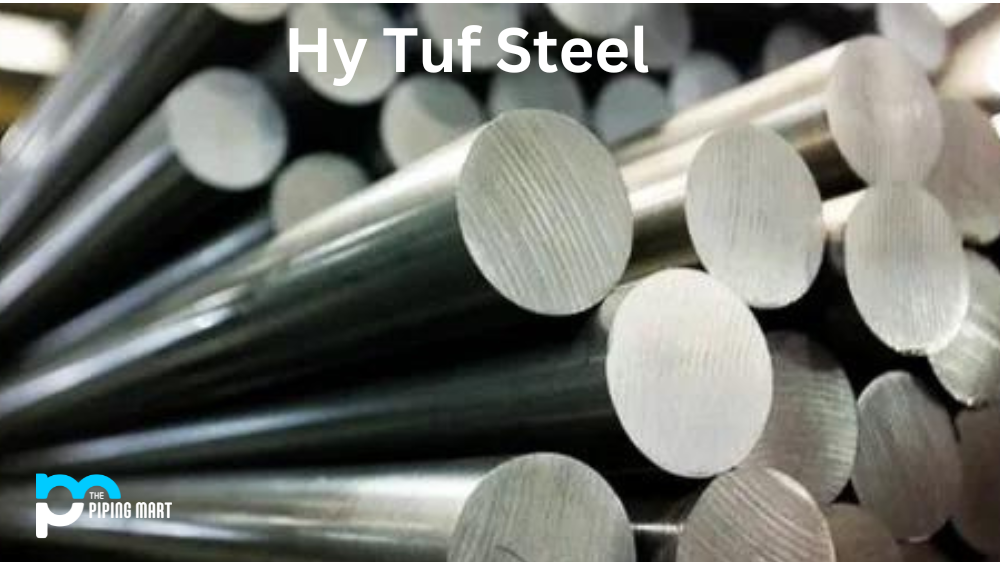Alloy steel grade P23 is a high-grade, alloy steel material that has amazing properties for a variety of uses. It can be used in construction and industrial applications and is a great choice for those who need a reliable and durable material. In this article, we will look at the composition, chemical properties, physical properties, uses corrosion resistance, heat resistance, heat treatment and machining of Alloy Steel Grade P23.
P23 Alloy Steel Composition
Alloy Steel Grade P23 contains the following elements in its composition: iron (Fe), carbon (C), manganese (Mn), chromium (Cr), silicon (Si) and molybdenum (Mo). This combination of elements provides excellent strength and ductility while still being cost-effective to produce. The alloy also has good weldability and machinability.
| C, % | Mn, % | P, % | S, % | Si, % | Cr, % | Mo, % | V, % | Nb, % | B,% | N, % | Al, % | W, % |
| 0.04-0.10 | 0.1-0.6 | 0.03 max | 0.01 max | 0.5 max | 1.9-2.6 | 0.05-0.30 | 0.20-0.30 | 0.02-0.08 | 0.0005-0.006 | 0.03 max | 0.03 max | 1.45-1.75 |
P23 Alloy Steel Chemical Properties
The chemical properties of Alloy Steel Grade P23 are determined by its composition. It has a low carbon content which makes it highly resistant to corrosion. The Mn content gives it greater tensile strength than other types of alloys. The Cr content increases hardness while the Si content improves wear resistance. The Mo content gives good alloy formability as well as increased hardenability after heat treatment.
P23 Alloy Steel Mechanical Properties
Alloy Steel Grade P23 offers excellent mechanical properties that make it a popular grade of steel for construction and other applications. It is known for its high yield strength, tensile strength and hardness, as well as excellent weldability, durability, ductility and machinability. The combination of these properties makes it ideal for creating structural parts with low-to-medium stress levels but with the ability to withstand higher temperatures than carbon steel grades. This makes it well-suited for use in pressure vessels and valves and overall engineered components with exposure to higher temperatures. In addition to its stellar mechanical properties, the alloys used in Grade P23 steel offers good resistance to corrosion.
| Tensile Strength, MPa | Yield Strength, MPa | Elongation, % |
| 510 min | 400 min | 20 min |
P23 Alloy Steel Physical Properties
Alloy Steel Grade P23 has an ultimate tensile strength ranging from 830 to 1300 MPa, depending on its tempering temperature. Its yield strength ranges from 550 to 800 MPa, while its elongation ranges from 20% to 40%. Its Brinell hardness rating is 170 HBW with a Poisson’s ratio of 0.27 – 0.32 and an electrical resistivity of 0.000029 Ohm-cm2/cm3 at 23°Celsius or 73°Fahrenheit.
P23 Alloy Steel Equivalent
- EN 10216-2
- ASTM A213
- ASME SA213
- GOST 550-75
- NBR 5603
Alloy Steel Grade P23 Uses
Alloy Steel Grade P23 can be used for various applications due to its excellent mechanical properties, such as bolts, springs, bearings, valves, bushings, pins etc. It is also widely used in automotive components because it provides superior wear resistance compared to other grades of steel due to its higher hardness value when tempered correctly. Its good weldability makes it suitable for use in welding processes such as arc welding and oxy-acetylene welding processes where high precision is required.
Corrosion Resistance
The chromium content in Alloy Steel Grade P23 gives it excellent corrosion resistance against acidic environments such as sulfuric acid or hydrochloric acid while still being able to withstand high temperatures without degrading quickly over time due to oxidation or wear caused by friction forces between moving parts inside machinery or engines during operation cycles that create heat energy which causes these parts to expand differently leading to premature failure if the right materials are not chosen before starting manufacturing processes like these ones mentioned above.
Heat Resistance
Alloy Steel Grade P23 can withstand temperatures up to 1000°C without any significant changes in its mechanical properties, so it can be used in applications that require exposure to high temperatures, such as turbine blades or furnace liners where hot gases pass through them, requiring materials with superior heat resistant qualities like this one provided by this particular grade of steel.
Heat Treatment
This particular grade requires no additional treatments since it already has been treated during production processes, but if further modifications are needed, like increasing harder or softer characteristics, then some modified treatments might be necessary, like normalizing then quenching followed by tempering at different specific temperatures depending on desired end results after machining operations are completed.
Machining
Because Alloy Steel Grade P23 has good machinability with very little distortion when properly treated and hardened before machining operations, then this type of steel is ideal for components requiring close tolerances where accuracy is demanded when producing end products like rod shafts, gears etc.
Welding
Alloy Steel Grade P23 welding is a process used to join pieces of P23 steel together. This grade of steel contains high concentrations of alloying elements such as chromium, manganese, nickel, and molybdenum, which makes it particularly strong and durable. When welding this grade of steel, particular care must be taken due to its high hardness and strength, which require specific tools, temperatures, and techniques. Utilizing Alloy Steel Grade P23 welding can result in a powerful and reliable joint for many heavy-duty applications. The longevity and strength of the welded joint will depend heavily on the skill and experience of the welder, so it is important that certified professionals undertake any complex Alloy Steel Grade P23 welding projects.
Conclusion
All in all, Alloy Steel Grade P23 has amazing properties that make it ideal for many industries thanks mainly due its amazing mechanical properties enhanced by its low carbon content making it highly corrosion resistant, making sure that components manufactured using this grade last longer than usual providing customers with more value than ever before so if you’re looking for alloy steel that can provide you with superior performance over long periods then consider using Alloy Steel Grade P23 today!

Meet Bhavesh, a seasoned blogger with a wealth of knowledge and experience. From metal products manufacturing to retail, Bhavesh has a diverse background in various industries and is dedicated to sharing his insights and expertise with readers.




